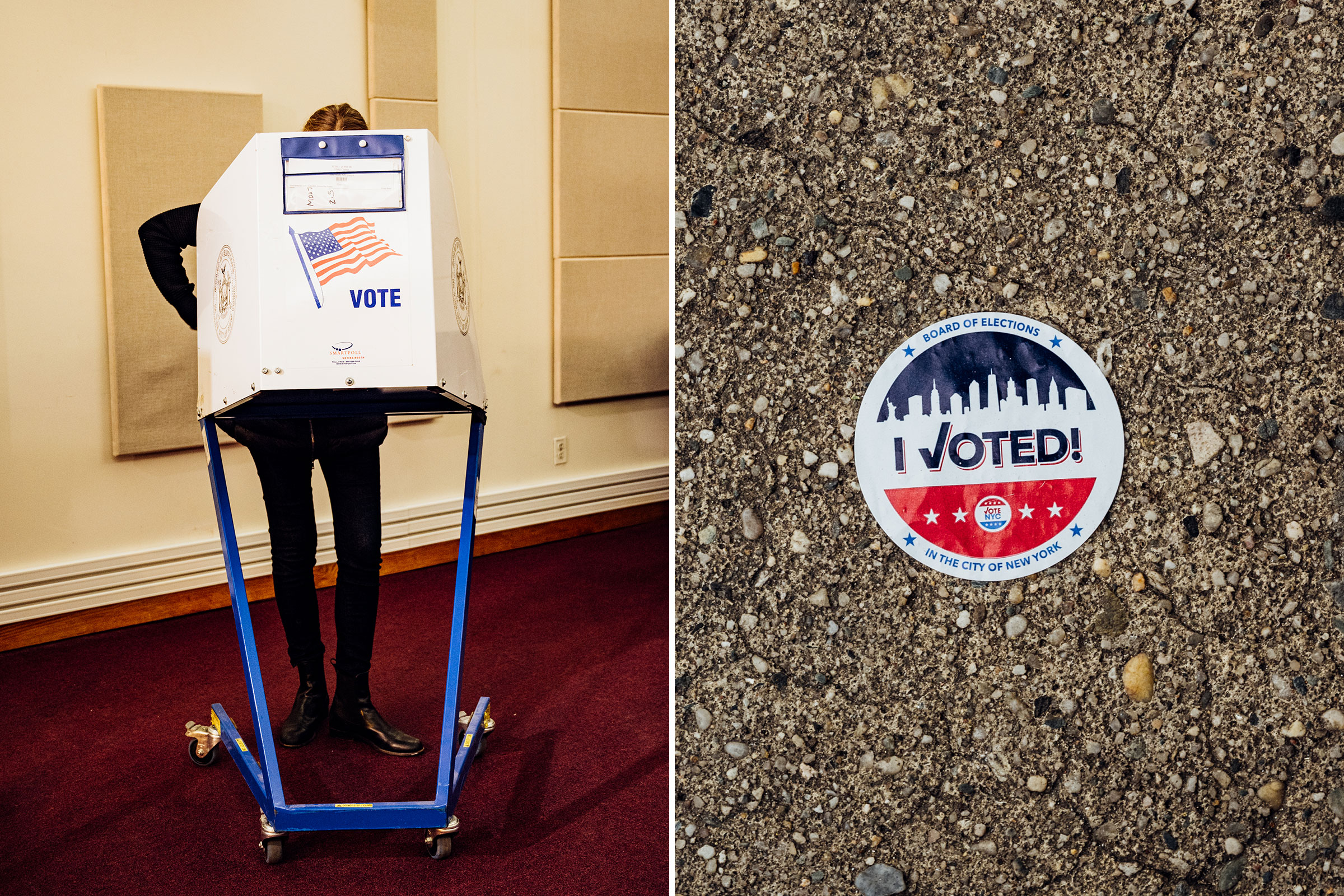
Not much has been going right this year. But look: In an atmosphere variously described as “great uncertainty” and a prelude to civil war, the people of the United States conducted an election. It went pretty much perfectly. This does not mean that we don’t have problems. It means we agree on how to address them—through the democratic system at the most basic and tangible level, the act of voting.
There were so many ways it could have gone wrong that many of us have failed to appreciate how much went deeply right. The threats looming over the 2020 ballot were indeed numerous, and in almost every case real. There was the lethal virus spread by proximity to others, which placed more importance on mailed ballots, which the President made no secret of trying to impede — including by tampering with the Postal Service.
There was the threat of interference by Russia, which since the days of the KGB has tried to exploit the fissures in U.S. society to demonstrate that democracy does not work.
And there was the election system itself, an unwieldy contraption by design, because the U.S. Constitution leaves the conduct of elections to the states, and there are 50. Each makes its own rules and then delegates responsibility to the county, of which there are even more: 3,143. That’s 3,143 opportunities for something to go wrong.
Reason existed to fear something would. In the 2000 general election the county of Palm Beach confounded the world with the design of its ballot. In 2020, the state of Iowa decided the very first contest in the presidential primary was the moment to roll out new reporting software every bit as transparent and intuitive as Dr. Seuss’ Audio-Telly-o-Tally-o Count. Small wonder that, come fall, international election observers ordinarily deployed to monitor the vote in remote, unstable countries fanned out across America.
And went home impressed. The system not only worked, it’s standing fast against pressure from a sore loser who also happens to be the most powerful man in the world. How? Partly for the same reason that 12:01 a.m. Jan. 1 of the new millennium arrived without half the laptops and Seikos on the globe crashing from Y2K, the rollover catastrophe widely forecast, and addressed. Fortune really does favor the prepared.
But this time it wasn’t just the IT department that saved the day. The 154 million people who marked a ballot amount to 66 percent of eligible voters, the highest turnout in 120 years. We may be a highly polarized nation, but there appears to be something approaching consensus on how to proceed. En masse, people undid the most unsettling of the warnings about 2020—polling places might be surrounded by people with guns, militias or worse. The Trump campaign encouraged the this, calling for an “Army” for “election security.” The threat seemed credible enough amid the galloping uncertainty that preceded the vote, especially on social media, where conspiracy theories go for plausibility and people seem capable of just about anything.
But on Election Day, reality waits in a school gymnasium or a firehouse, some public space we all share. You stand in line with neighbors you may or may not know, but actually see. The atmosphere is unique, though not uniquely American. Fifteen years ago I watched residents of Baghdad line up to cast their ballots in a city suffused in the same air. At one polling place, a high school, a suicide bomber approached the line of voters and exploded himself. By the time I got there, the dead had been carried away and people had resumed voting. The line had grown longer.
Nothing like that happened in America in November. If anyone showed at a polling place with a gun, thinking security was needed, you imagine him stepping back in embarrassment after encountering the civic force field already there. Passions can run high in politics, but voting is about citizenship. As an election approaches, the number of Americans sworn to defend the Constitution swells: On top of the 2.1 million federal workers and 2.4 million active and reserve military, the oath is also sworn by the at least half-million Americans who volunteer as poll workers. It’s not exactly the same words the President swears by, but it’s the same idea: You’re part of something larger than yourself.
More Must-Reads from TIME
- Cybersecurity Experts Are Sounding the Alarm on DOGE
- Meet the 2025 Women of the Year
- The Harsh Truth About Disability Inclusion
- Why Do More Young Adults Have Cancer?
- Colman Domingo Leads With Radical Love
- How to Get Better at Doing Things Alone
- Michelle Zauner Stares Down the Darkness
Contact us at letters@time.com